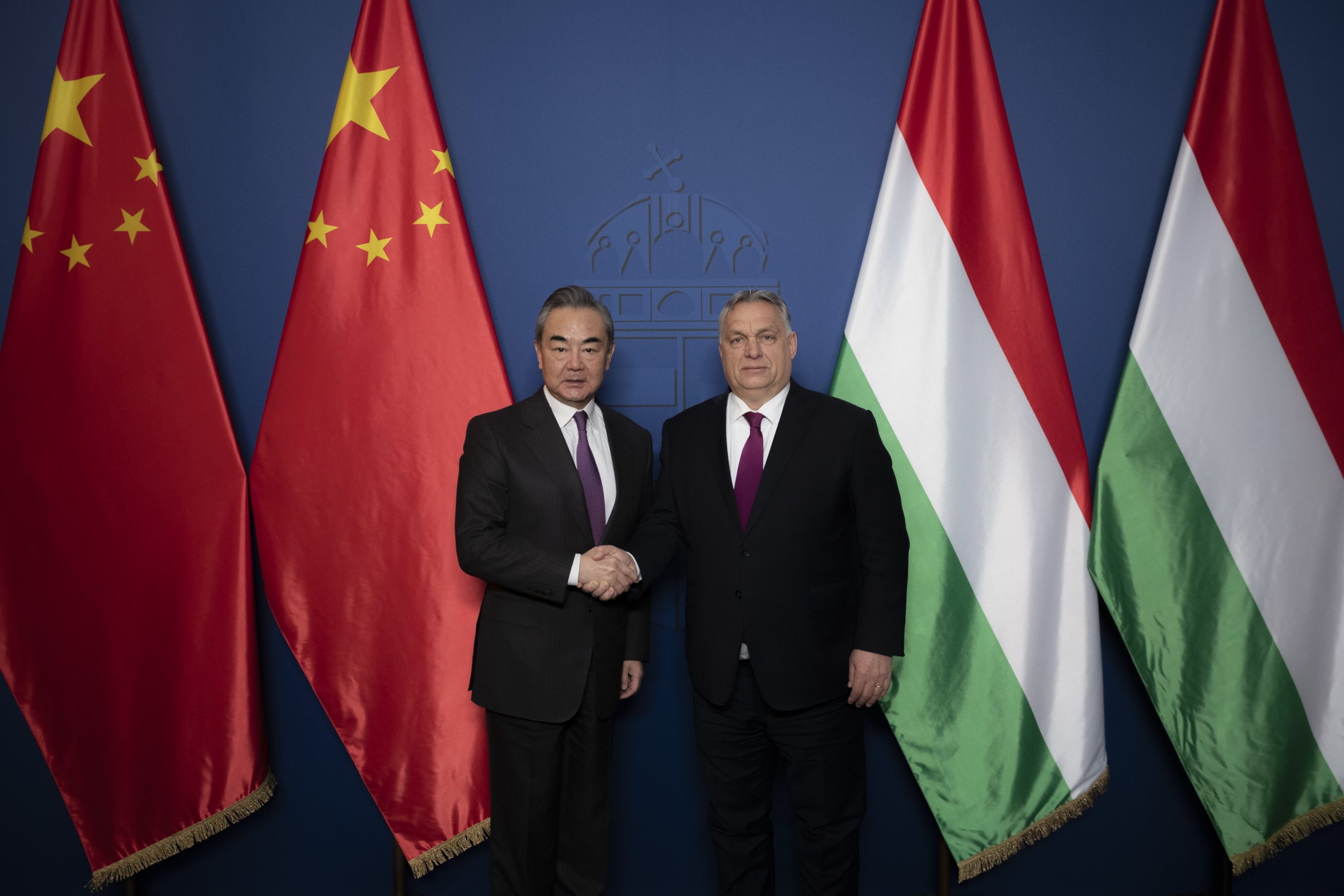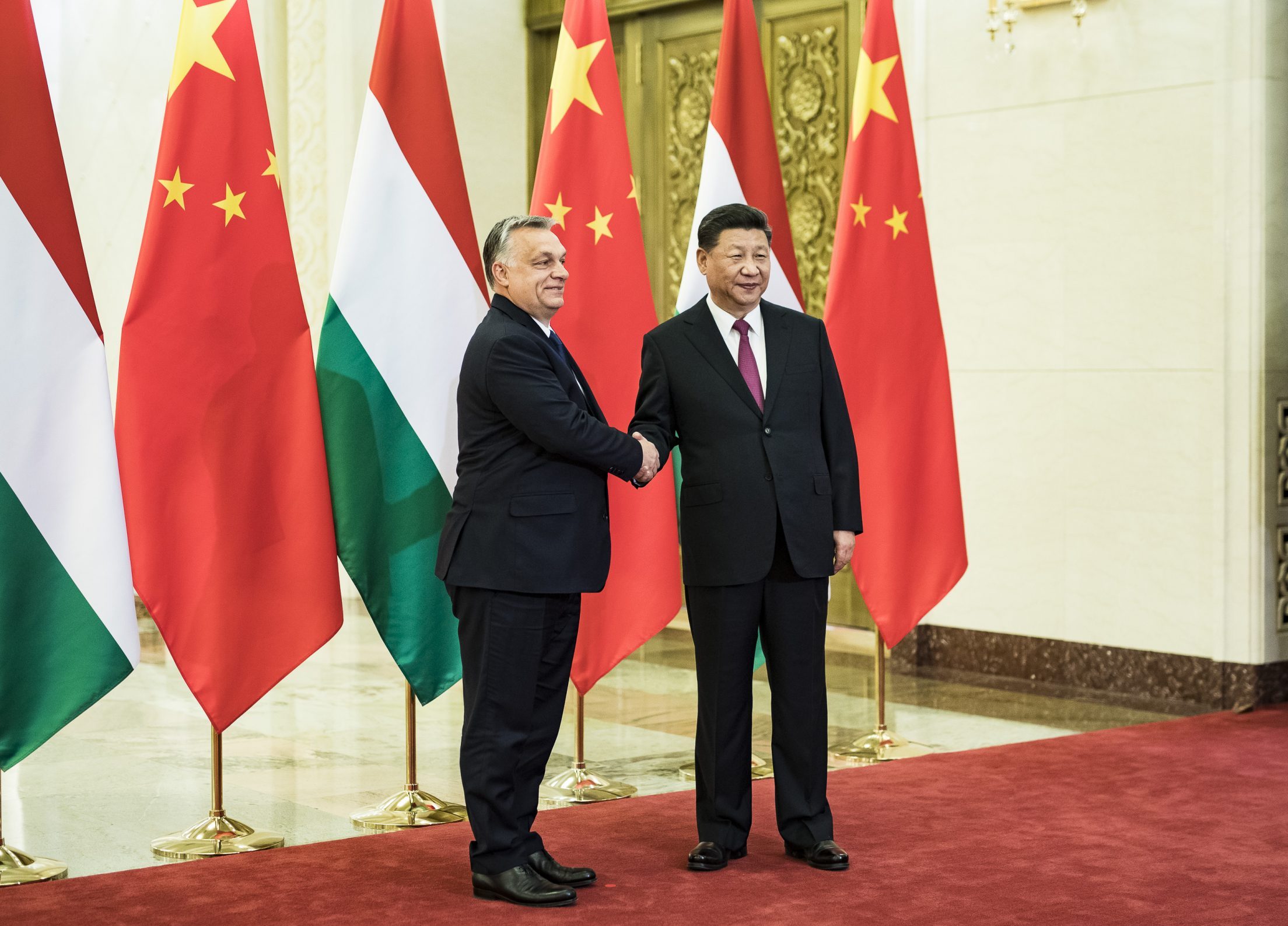
"Hungary has been consistently high on the investment map of the largest Chinese companies," says Foreign Minister Péter Szijjártó.Continue reading

A pragmatic relationship with China is an important part of Hungary’s geopolitical strategy. Viktor Orbán’s planned visit to Beijing in the autumn also shows that China considers Hungary an important partner in Europe.
Prime Minister Viktor Orbán will travel to China in the autumn, Index reports. Gergely Gulyás, Minister of the Prime Minister’s Office, informed the news portal about the date of the trip after his press conference on Thursday. Index reported earlier that Viktor Orbán’s visit to Beijing was in the pipeline, citing Bertalan Havasi, the prime minister’s press chief.
State Councilor Wang Yi, a member of the Political Bureau of the CPC Central Committee and Director of the Office of the Central Commission for Foreign Affairs visited Budapest in late February. He met both Viktor Orbán and Minister of Foreign Affairs and Trade Péter Szijjártó.
After the visit, Levente Horváth, Hungary’s former consul general in Shanghai and the director of the Eurasia Center told Index that the Chinese state councilor may have been preparing the trip of a Hungarian prime ministerial delegation. “Hungary is an important partner of China in Europe. Xi Jinping has already visited Hungary as vice-president in 2009 and the Central and Eastern European region as president: he visited Poland, the Czech Republic, and Serbia, but he has not been to Hungary yet,” he reminded.
The Eastern Opening, including pragmatic cooperation with China, is a fundamental element of Hungarian foreign policy. Balázs Orbán, the prime minister’s political director, recently wrote that Hungary is not interested in bloc-building but in strengthening connectivity. Last week in parliament, Viktor Orbán expressed his support for China’s peace plan.
In his state of the nation speech earlier, the prime minister also pointed out that while the pro-peace Hungarian position may be in the minority in the West, much of the world shares it. This is also reflected in the fact that the anti-Russia sanctions, which the Hungarian government has frequently criticized, have basically only been introduced by the Western bloc, not by the majority of the world – Asia, Africa, and Latin America.
China’s peace proposal and its involvement in the settlement of the Ukraine conflict could mark a turning point in world politics, a clearer shift towards a multipolar world order than ever before.
In this context, Levente Horváth told Index that “there are several proxy wars going on in the world as a result of the transformation of world order. The Western powers feel they are losing their familiar autocracy, and the center of gravity of the world economy is shifting to the East, China is the second largest economy in the world economy, but India, Indonesia, and other Asian countries are also playing an increasing role in the world economy. The West does not look kindly on this, demonizing the Asian world and making serious efforts to prevent or at least stifle the emergence of a new world order. As a result, some countries may come under strong external pressure”.
Featured photo via Miniszterelnök.hu/Szecsődi Balázs/Miniszterelnöki Sajtóiroda